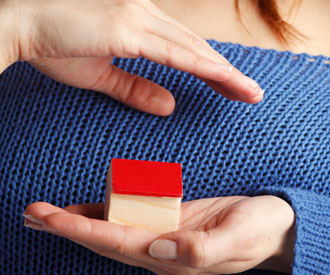We’re leading an email course this summer on Practicing Spirituality at Home. Preparing the 40 daily emails and looking forward to discussions in our online Practice Circle, we find we are really interested in hearing how people find spiritual meaning in their things. Here are some of our thoughts on the matter.

There is a rich and soulful emphasis in the world’s wisdom traditions on respecting inanimate objects. Many Christians see the sacramental value of things as signs of God’s presence; Jewish mystics speak of the divine spark that resides in everything; Hindus take great pleasure in ordinary objects as manifestations of Brahman; Sufis kiss cups and musical instruments as part of their practice of adab; and Native Americans and Confucians show courtesy for all things as part of their way of living.
Somehow in the push and shove of our days we have lost this reverence for possessions. Instead, we hear about the over-emphasis upon materialism in modern societies. This is a valid ethical critique but there is also another perspective which does not get as much play. Both Shaun McNiff and Thomas Moore, two of our Living Spiritual Teachers, are advocates of a “soulful materialism” where the objects in our homes are appreciated and cherished for their beauty, expressiveness, life, and creativity. They, along with the French Catholic priest Teilhard de Chardin, challenge us to reframe our ideas and habits in light of the recognition that “things have their within.”
Poets and painters have been of great service as we shift our perspective on things. They encourage us to pay closer attention to the commonplace objects that surround us. Spend some time with the paintings of Vincent Van Gogh where he conveys the beauty and the energy of a coffee-pot, a pair of worn-out shoes, and a pipe and pouch. The poet Rainer Maria Rilke reminds us that we give new birth to objects by gazing upon them with delight. Like us, things need love and affirmation.
Instead of cultivating an “I-Thou” relationship with the things around us, regarding them as companions and friends, many of us still act out what spiritual teacher Larry Dossey calls a “thing apartheid” whereby our possessions and the tools of our trade are seen merely as resources to be exploited and discarded when they are of no further use. This philosophy is reflected in the lack of care we give to our lamps, the refrigerator, the television set, the rugs, and the toaster in our homes.
When we aspire to adapt a new attitude toward the things in our lives, we remember the robot in the movie Bicentennial Man whose motto is “One is glad to be of service.” Our things are providing us with services, and we owe them our gratitude.
In our hurry sickness society where we rarely have time for family and friends, the sensitive maintenance of our possessions may not seem like a high priority. But as many spiritual teachers have told us, when we love, cherish, appreciate and handle our things, we are renewed and transformed by their energy, beauty, and uniqueness. Here are some practice suggestions to help you handle your things with care.

Create a Welcoming Ceremony for a New Possession
Express your appreciation for the new object and acknowledge its importance or meaning to you. If so inclined, say a prayer over this new possession acknowledging its Divine origin and noble place and purpose in creation.
Respect Your Things
In the Sufi practice of adab, objects are seen as manifestations of the Beloved and so in humility and gratitude dervishes kiss the tea glass from which they drink or the carpet on which they have just prayed. According to Sheikh Kabir Helminski, a dervish doesn’t “put out” a candle, s/he “puts it to rest.” Come up with your own set of informal practices in which you demonstrate your respect and love for your things.
Annoint Your House with Beautiful Things
In 101 Ways to Have True Love in Your Life, Daphne Rose Kingma writes: “Fill your life with beauty. . . . Annoint your house with beautiful things: objects, fragrances, movements, moments, sounds, emotions. . . . Beauty in this life is a reflection of our souls.” Make a list of the most beautiful things you own. Reflect upon the emotions and feelings they draw out of you and others.
Bring a Bit of Enchantment to the Office
In The Re-enchantment of Everyday Life, Thomas Moore contends that offices are often lacking in human touches and things of beauty. If you work at a desk or have an office, be sure to create enchantment in this working place with objects that carry beauty, energy, or emotional vibrations from those you love. It will make all the difference in the world to have these things with you.
We’ll have more thoughts and practices in our next post.











